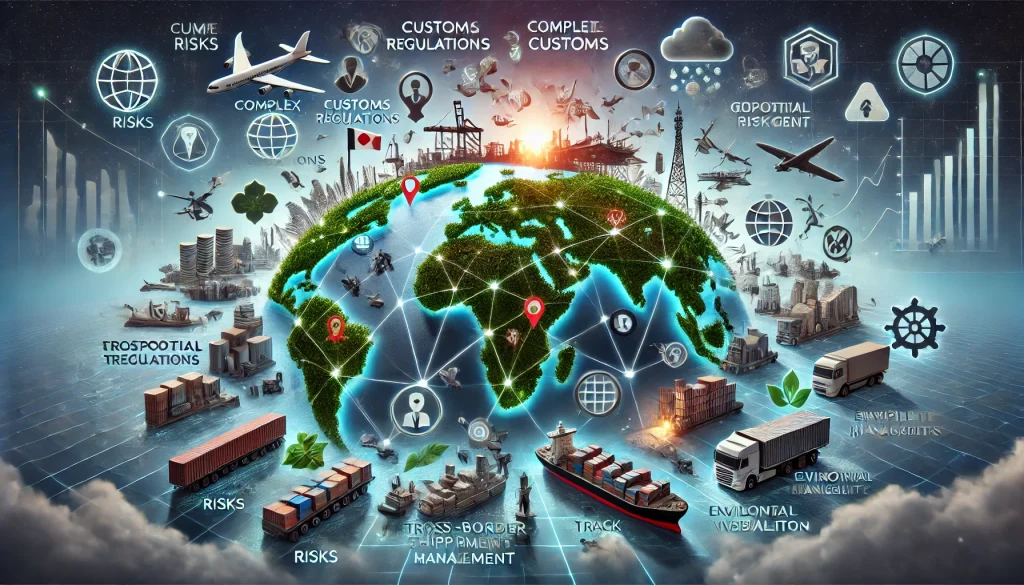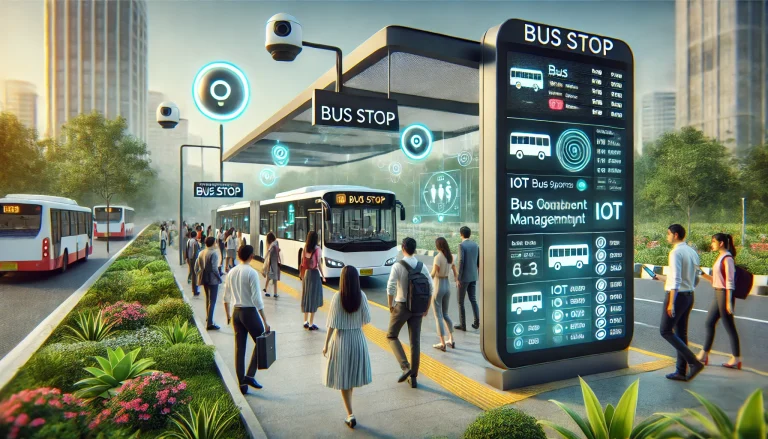Problem Statement
International logistics involves navigating complex customs regulations, diverse transportation networks, and geopolitical risks. Companies must ensure compliance with varying international standards, manage cross-border shipments efficiently, and mitigate risks associated with global trade disruptions. Effective management of international logistics is crucial for maintaining global supply chain integrity and ensuring timely delivery of goods. However, the complexity and unpredictability of global trade pose significant challenges that require innovative solutions and robust management strategies.
Pain Points
- Complex Customs Regulations: Navigating different customs procedures and documentation requirements across countries.
- Diverse Transportation Networks: Coordinating various modes of transport (air, sea, rail, road) for efficient delivery.
- Geopolitical Risks: Managing risks related to political instability, trade wars, and sanctions.
- Compliance with International Standards: Ensuring adherence to varying standards and regulations in different regions.
- Cross-Border Shipment Management: Handling the logistics of moving goods across borders, including tariffs and duties.
- Supply Chain Disruptions: Mitigating risks of disruptions due to natural disasters, pandemics, or strikes.
- Cost Management: Controlling costs associated with international shipping, including fuel surcharges and freight rates.
- Tracking and Visibility: Ensuring real-time tracking and visibility of international shipments.
- Cultural and Language Barriers: Overcoming communication challenges in dealing with global partners.
- Environmental Regulations: Complying with international environmental laws and sustainability practices.

Future Vision
Our platform envisions a future where international logistics is streamlined, transparent, and resilient. By leveraging advanced technologies such as AI, blockchain, and IoT, the platform will provide real-time tracking, automated customs compliance, and predictive analytics to foresee and mitigate risks. The platform will facilitate seamless integration of diverse transportation networks and ensure adherence to international standards, making cross-border shipment management more efficient. Our vision is to create a robust, secure, and adaptable logistics ecosystem that enhances global trade efficiency, reduces costs, and ensures the integrity of global supply chains.
Use Cases
- Automated Customs Compliance: AI-driven tools for ensuring compliance with customs regulations and documentation.
- Real-Time Shipment Tracking: IoT-enabled sensors for tracking shipments across various transportation modes.
- Risk Management: Predictive analytics to identify and mitigate geopolitical and environmental risks.
- Cost Optimization: Tools for managing and optimizing costs associated with international shipping.
- Integrated Transportation Networks: Seamless integration of air, sea, rail, and road transportation for efficient logistics.
- Supply Chain Visibility: Comprehensive dashboards for real-time visibility into the entire supply chain.
- Cultural and Language Solutions: Translation and communication tools to overcome barriers with global partners.
- Environmental Compliance: Systems to ensure compliance with international environmental regulations and sustainability practices.
- Stakeholder Collaboration: Platforms for enhanced communication and collaboration among global logistics stakeholders.
- Emergency Response: Tools to manage and respond to disruptions in the supply chain quickly and efficiently.
Target Users and Stakeholders
- User: International Logistics Managers
- Age Group: 30-60 years
- Gender: M/F
- Usage Pattern: Daily usage for monitoring, planning, and decision-making
- Benefit: Enhanced compliance, reduced costs, and improved efficiency in international logistics
- Stakeholders:
- Businesses: Companies involved in global trade and logistics
- Customs Authorities: Agencies overseeing international trade compliance
- Transportation Providers: Companies providing air, sea, rail, and road transport
- Supply Chain Partners: Entities involved in the global supply chain
- Investors: Entities investing in logistics and supply chain technology solutions
Key Competition
- Flexport: Provides comprehensive freight forwarding and customs brokerage services.
- DHL Global Forwarding: Offers integrated logistics solutions for global trade.
- Kuehne + Nagel: Specializes in international freight forwarding and supply chain management.
- C.H. Robinson: Provides global logistics and supply chain solutions.
- DB Schenker: Offers worldwide logistics and supply chain management services.
Products/Services
- Flexport Platform: Digital freight forwarding and customs compliance platform.
- DHL Global Trade Services: Comprehensive logistics solutions for international trade.
- Kuehne + Nagel KN FreightNet: Online platform for freight management and tracking.
- C.H. Robinson Navisphere: Integrated global logistics management platform.
- DB Schenker Connect: Digital solutions for international logistics and supply chain management.
Active Startups
- ShipBob: Provides fulfillment solutions for e-commerce businesses.
- Freightos: Digital platform for comparing and booking international freight services.
- Convoy: Offers digital freight network solutions for international logistics.
- Flock Freight: Uses technology to optimize shared truckload shipping.
- Xeneta: Provides ocean and air freight rate benchmarking and market intelligence.
- FourKites: Real-time tracking and visibility platform for international shipments.
- Nuvocargo: Digital logistics platform for cross-border trade between the US and Latin America.
- Sennder: Digital freight forwarder focused on European road freight.
- Project44: Advanced visibility platform for logistics and transportation.
- Turvo: Collaborative logistics platform connecting shippers, brokers, and carriers.
Ongoing Work in Related Areas
- AI and Machine Learning: Enhancing predictive analytics and risk management for international logistics.
- Blockchain: Improving transparency and security in cross-border transactions and documentation.
- IoT: Real-time tracking and monitoring of shipments across global supply chains.
- Sustainability: Developing eco-friendly logistics practices and reducing carbon footprint.
- Automation: Streamlining customs compliance and documentation through automated systems.
Recent Investment
- Flexport: $935M in Series E funding led by Andreessen Horowitz, February 2023.
- Freightos: $80M in Series D funding led by Singapore Exchange, September 2023.
- Convoy: $400M in Series D funding led by Generation Investment Management, April 2022.
- Flock Freight: $113.5M in Series D funding led by SoftBank Vision Fund 2, October 2023.
- Nuvocargo: $36.5M in Series B funding led by Tiger Global, July 2023.
Market Maturity
The market for international logistics solutions is evolving rapidly, driven by the increasing complexity of global trade and the need for efficient logistics management. Significant investments in AI, blockchain, and IoT technologies are transforming the industry, with both established companies and innovative startups leading the way. As the market continues to mature, we can expect more integrated and advanced platforms that address the challenges of international logistics and enhance global supply chain efficiency.
Summary
International logistics involves navigating complex customs regulations, diverse transportation networks, and geopolitical risks. Ensuring compliance with varying international standards, managing cross-border shipments efficiently, and mitigating global trade disruptions are critical challenges. Our proposed platform leverages AI, blockchain, and IoT to provide real-time tracking, automated customs compliance, and predictive analytics for risk management. Key pain points include complex customs regulations, diverse transportation networks, geopolitical risks, compliance with international standards, cross-border shipment management, supply chain disruptions, cost management, tracking and visibility, cultural and language barriers, and environmental regulations.
Target users include international logistics managers, with stakeholders encompassing businesses, customs authorities, transportation providers, supply chain partners, and investors. Key competitors like Flexport, DHL Global Forwarding, Kuehne + Nagel, C.H. Robinson, and DB Schenker offer various international logistics solutions. Active startups such as ShipBob, Freightos, Convoy, Flock Freight, and Nuvocargo are driving innovation in this space. Recent investments highlight significant interest and growth potential in international logistics technology.
By addressing these challenges and leveraging advanced technologies, our platform aims to create a resilient, efficient, and transparent logistics ecosystem that enhances global trade efficiency and ensures the integrity of global supply chains.


